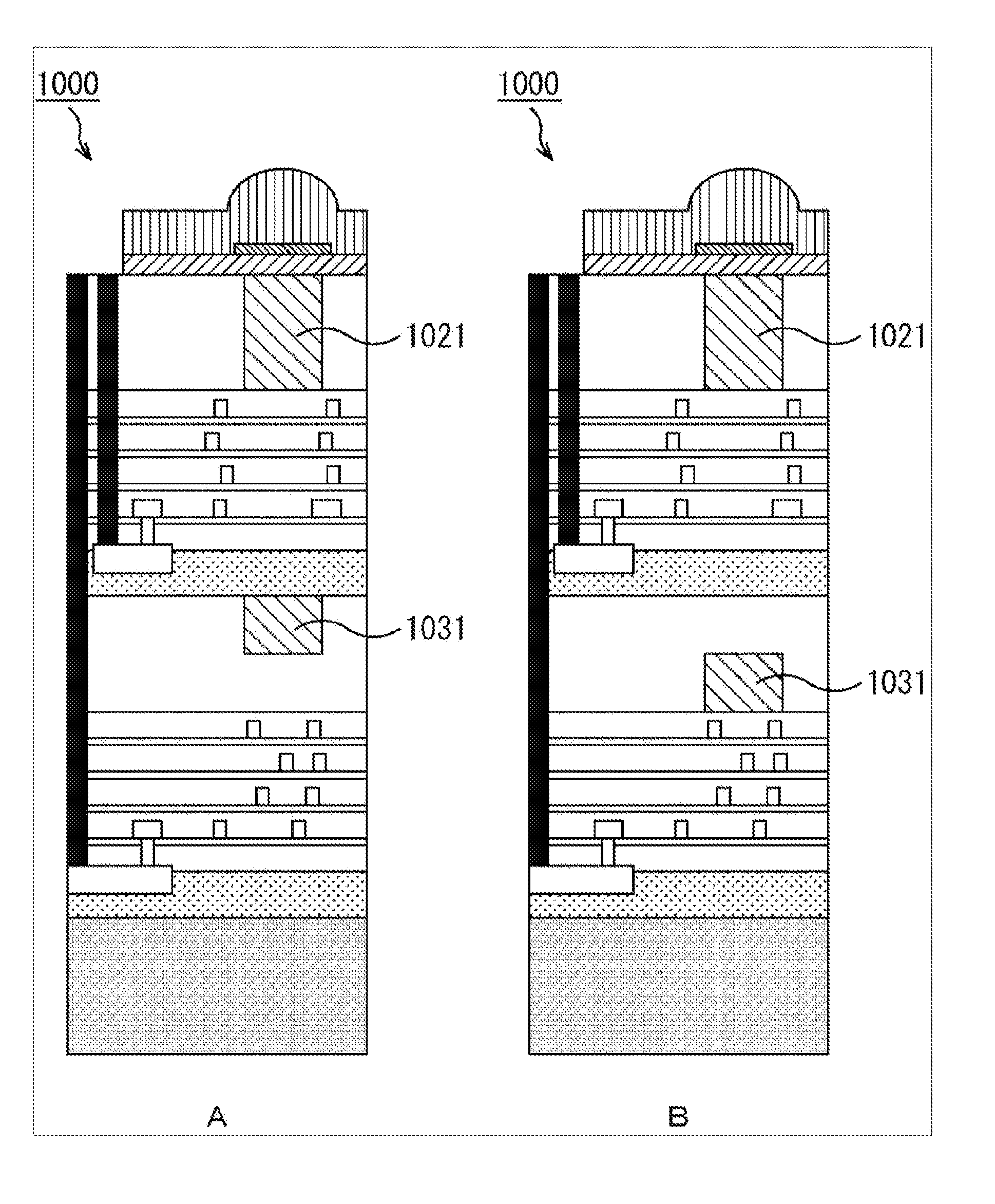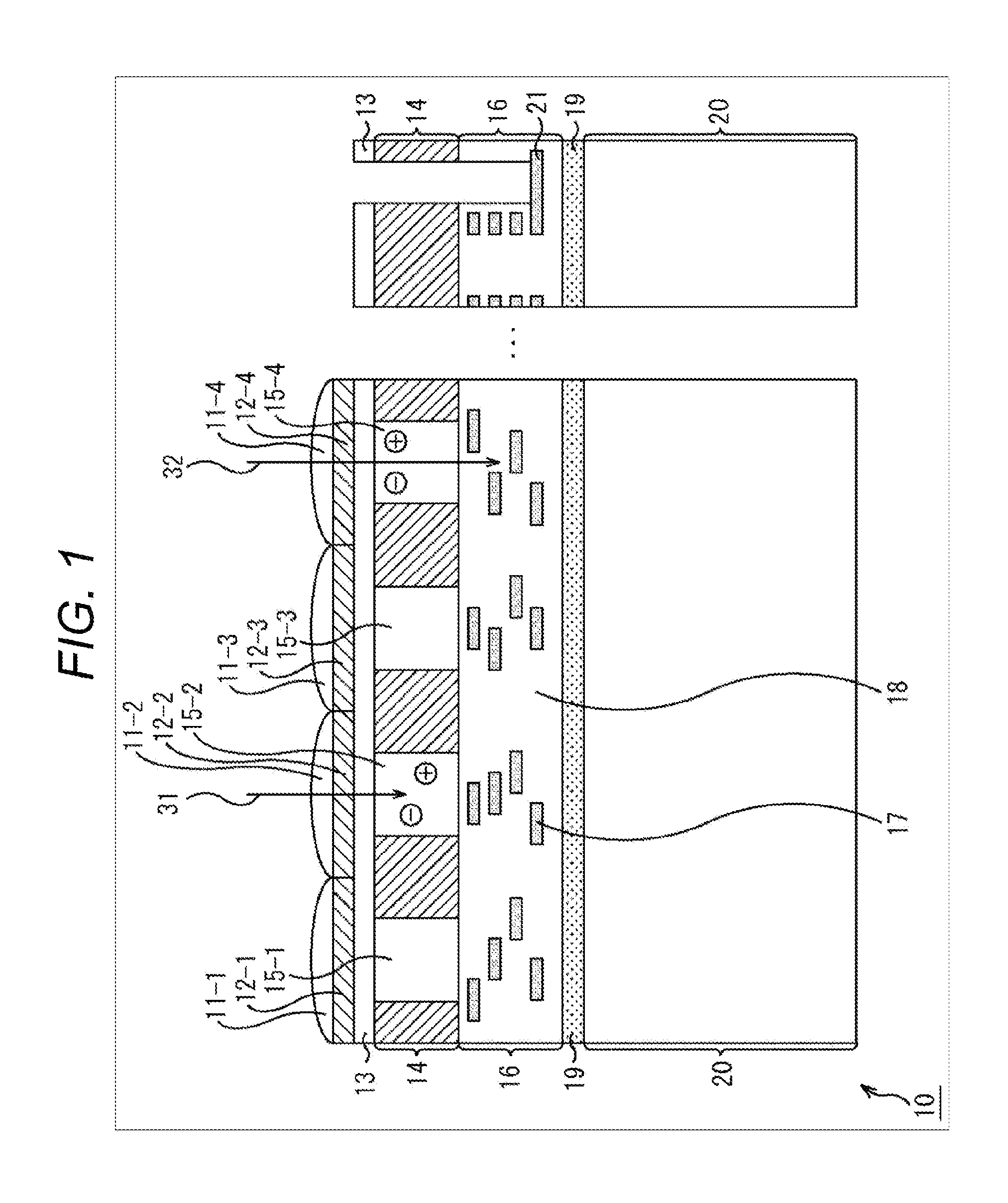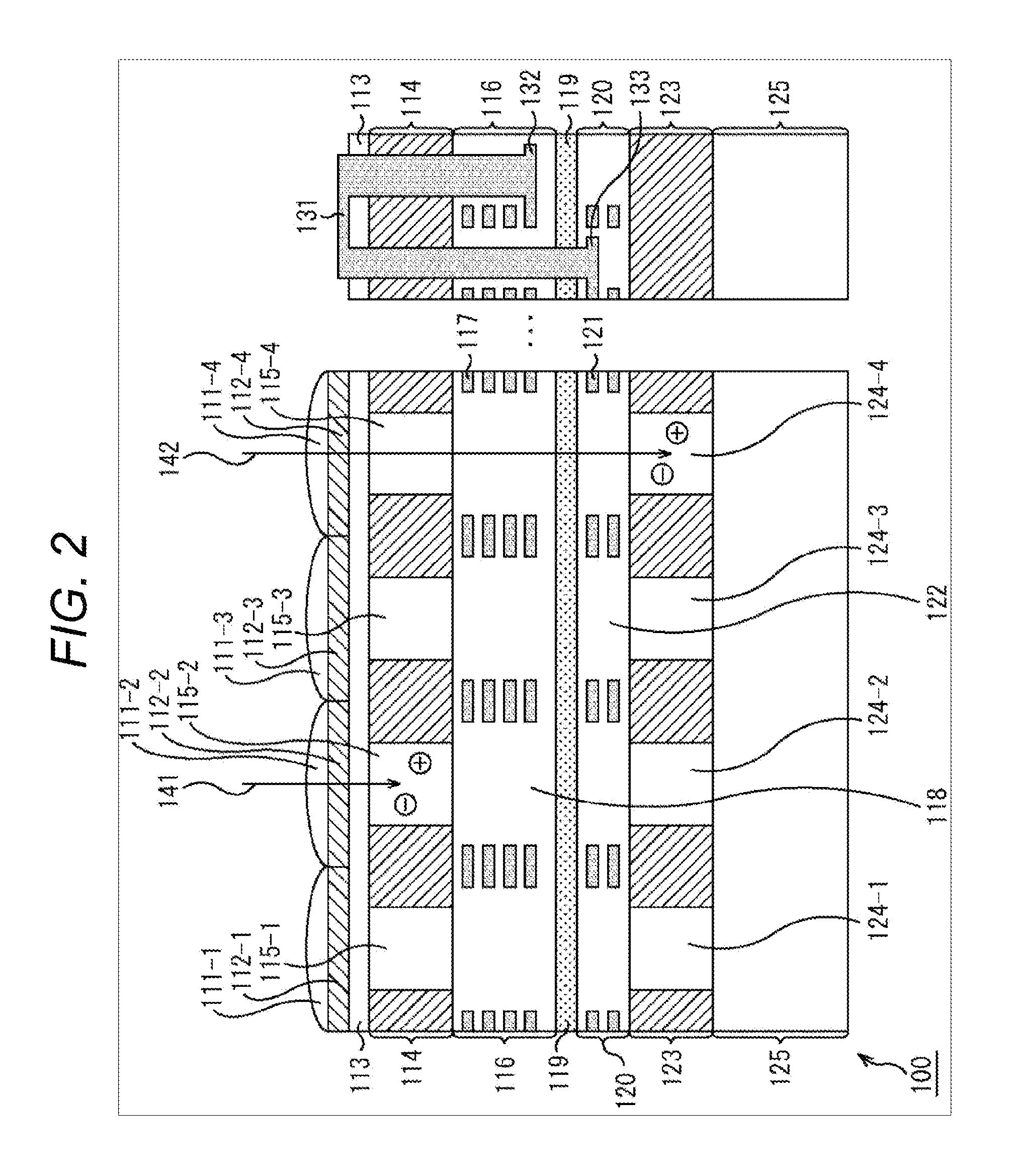Imaging element, electronic device, and information processing device
a technology of electronic devices and elements, applied in the direction of radiation controlled devices, picture signal generators, semiconductor devices, etc., can solve the problems of increasing the difficulty of development, the development cost and manufacturing cost, and the level of difficult development may increase further, so as to achieve more photoelectric conversion outputs
- Summary
- Abstract
- Description
- Claims
- Application Information
AI Technical Summary
Benefits of technology
Problems solved by technology
Method used
Image
Examples
first embodiment
1. First Embodiment
Conventional Imaging Element
[0091]Initially, a configuration example of a conventional imaging element is discussed. FIG. 1 is a figure illustrating an example of a chief configuration of a conventional CMOS (Complementary Metal Oxide Semiconductor) image sensor. A CMOS image sensor 10 illustrated in FIG. 1 is a rear surface irradiation type image sensor including CMOS and provided with an amplifier for each unit cell.
[0092]FIG. 1 illustrates a schematic structure of the CMOS image sensor 10 in the vertical direction (lamination direction) (schematic view of cross section). As illustrated in FIG. 1, the CMOS image sensor 10 includes a condensing lens 11, a color filter 12, and a photo diode (Photo Diode) 15 for each pixel.
[0093]FIG. 1 shows four pixels as an effective pixel area of the CMOS image sensor 10. Photo diode 15-1 to photo diode 15-4 are provided in a semiconductor substrate 14 as components of the four pixels. The photo diodes 15-1 to 15-4 are collectiv...
second embodiment
2. Second Embodiment
Manufacturing Device
[0133]As discussed above, the CMOS image sensor 100 illustrated in FIG. 2 may be so configured that the condensing lenses 111 through the passivation film 119 constitute the rear surface irradiation type CMOS image sensor, and that the wiring layer 120 through the support substrate 125 constitute the front surface irradiation type CMOS image sensor.
[0134]Assuming that the respective CMOS image sensors are independent from each other, the CMOS image sensor 100 may be manufactured by separately producing the rear surface irradiation type CMOS image sensor and the front surface irradiation type CMOS image sensor, overlapping the front surface irradiation type CMOS image sensor on the front surface side of the produced rear surface irradiation type CMOS image sensor, and connecting both the CMOS image sensors via the TSV 131.
[0135]FIG. 3 is a block diagram illustrating an example of a chief configuration of a manufacturing device to which the pres...
third embodiment
3. Third Embodiment
Imaging Element
[0151]The CMOS image sensor 100 may have arbitrary configurations as long as a large amount of light having passed through the photo diodes 115 travels through the wiring layer 116 and the wiring layer 120 (between the respective wires of the wiring layers 116 and 120) and reach the photo diodes 124. In other words, the positions of the respective wires 117 of the wiring layer 116 and the positions of the respective wires 121 of the wiring layer 120 are arbitrarily determined as long as the optical path of incident light is secured from the diodes 115 to the photo diodes 124. For example, the wires 117 and the wires 121 may be positioned below the photo diodes 115 or above the photo diodes 124.
[0152]In addition, waveguides may be formed in the wiring layer 116, for example. FIG. 5 is a figure illustrating a configuration example of the CMOS image sensor 100 thus constructed. According to the example illustrated in FIG. 5, a waveguide 251-1 is formed...
PUM
 Login to View More
Login to View More Abstract
Description
Claims
Application Information
 Login to View More
Login to View More - R&D
- Intellectual Property
- Life Sciences
- Materials
- Tech Scout
- Unparalleled Data Quality
- Higher Quality Content
- 60% Fewer Hallucinations
Browse by: Latest US Patents, China's latest patents, Technical Efficacy Thesaurus, Application Domain, Technology Topic, Popular Technical Reports.
© 2025 PatSnap. All rights reserved.Legal|Privacy policy|Modern Slavery Act Transparency Statement|Sitemap|About US| Contact US: help@patsnap.com



